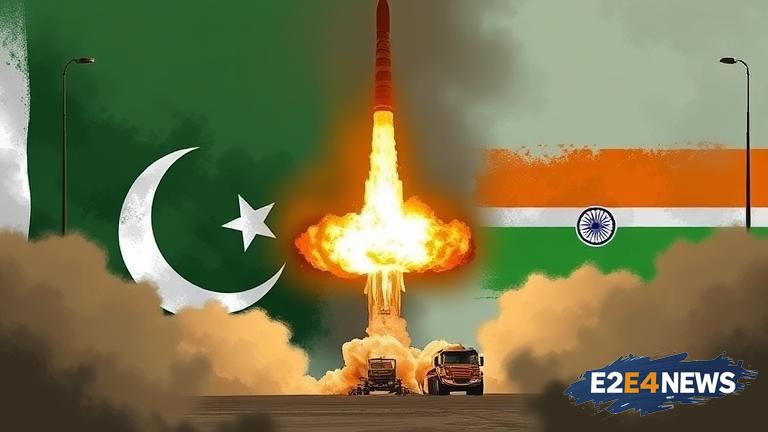The ongoing tensions between India and Pakistan have sparked concerns about the potential for nuclear escalation. However, Pakistan Prime Minister Shehbaz Sharif has categorically denied any such intentions, stating that the country’s nuclear capabilities are solely for defense and deterrence, not for aggression. Sharif’s statement comes amidst heightened tensions between the two nations, with both countries engaging in a war of words and diplomatic maneuvers. The conflict has been simmering for decades, with the disputed region of Kashmir being a major point of contention. Despite numerous attempts at diplomacy, the situation remains volatile, with both sides accusing each other of ceasefire violations and human rights abuses. The international community has been urging restraint and calling for a peaceful resolution to the conflict. Sharif’s statement is seen as an attempt to reassure the global community that Pakistan is committed to avoiding nuclear conflict. The Prime Minister emphasized that Pakistan’s nuclear program is designed to deter aggression, not to provoke it. He also called on the international community to play a more active role in resolving the Kashmir dispute, which he believes is the root cause of the conflict. The Indian government has responded to Sharif’s statement, saying that it is committed to defending its sovereignty and territorial integrity. The situation remains tense, with both sides maintaining a high level of military preparedness along the Line of Control. The United States, China, and other major powers have been urging calm and restraint, with some calling for a return to diplomatic negotiations. The conflict has significant implications for regional and global security, with the potential for nuclear escalation being a major concern. The international community is watching the situation closely, with many calling for a peaceful and diplomatic resolution to the conflict. In recent years, there have been numerous attempts at diplomacy, including the establishment of a ceasefire line and the exchange of diplomatic missions. However, the situation remains fragile, with both sides accusing each other of violating the ceasefire and engaging in provocative behavior. The Kashmir dispute is a complex and deeply entrenched issue, with both sides having competing claims and narratives. A peaceful resolution will require significant concessions and compromises from both sides, as well as a willingness to engage in meaningful dialogue and diplomacy. The international community must continue to play an active role in promoting peace and stability in the region, and in encouraging both sides to engage in constructive and meaningful dialogue.
